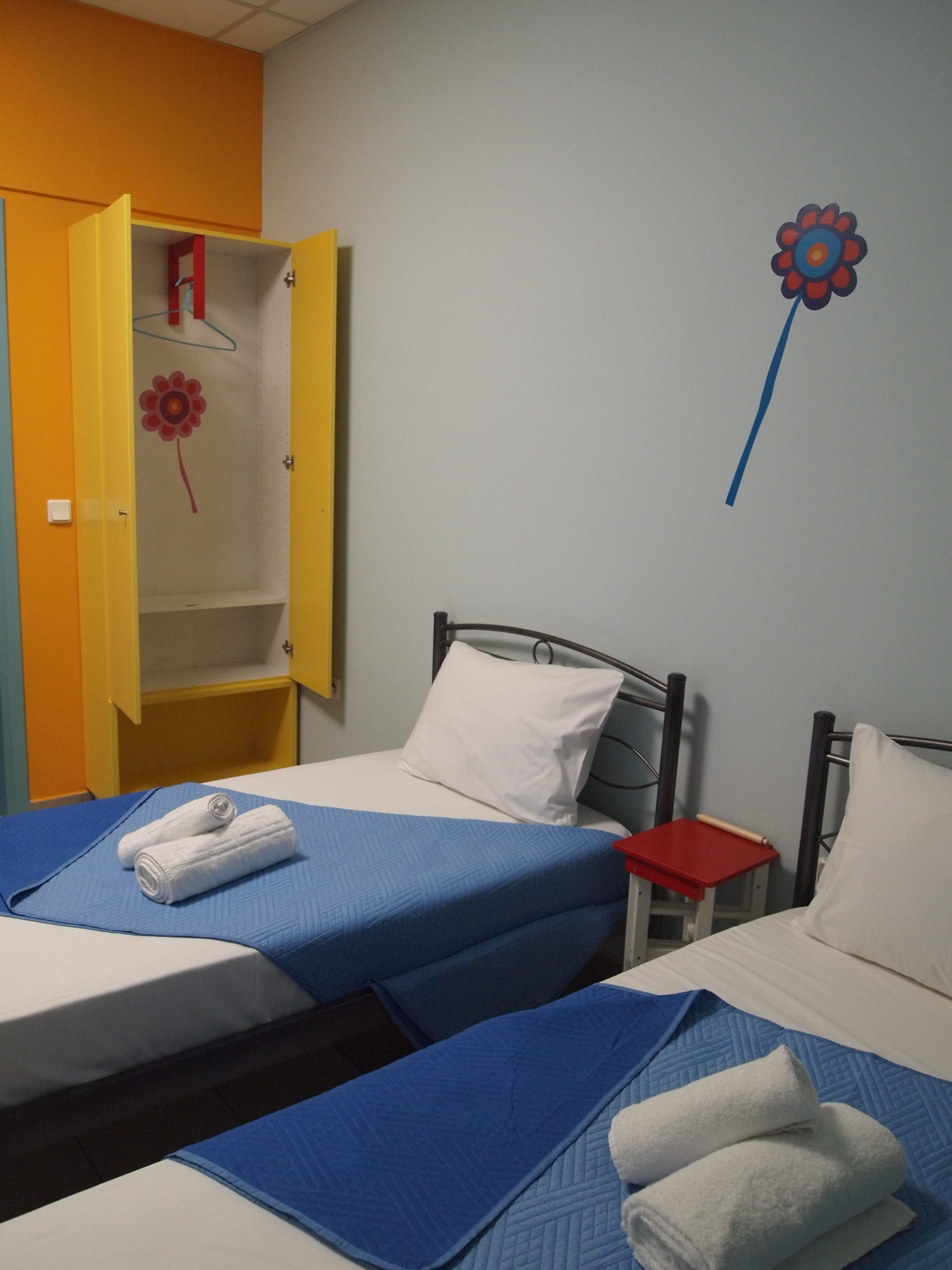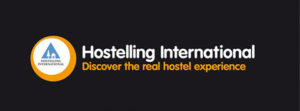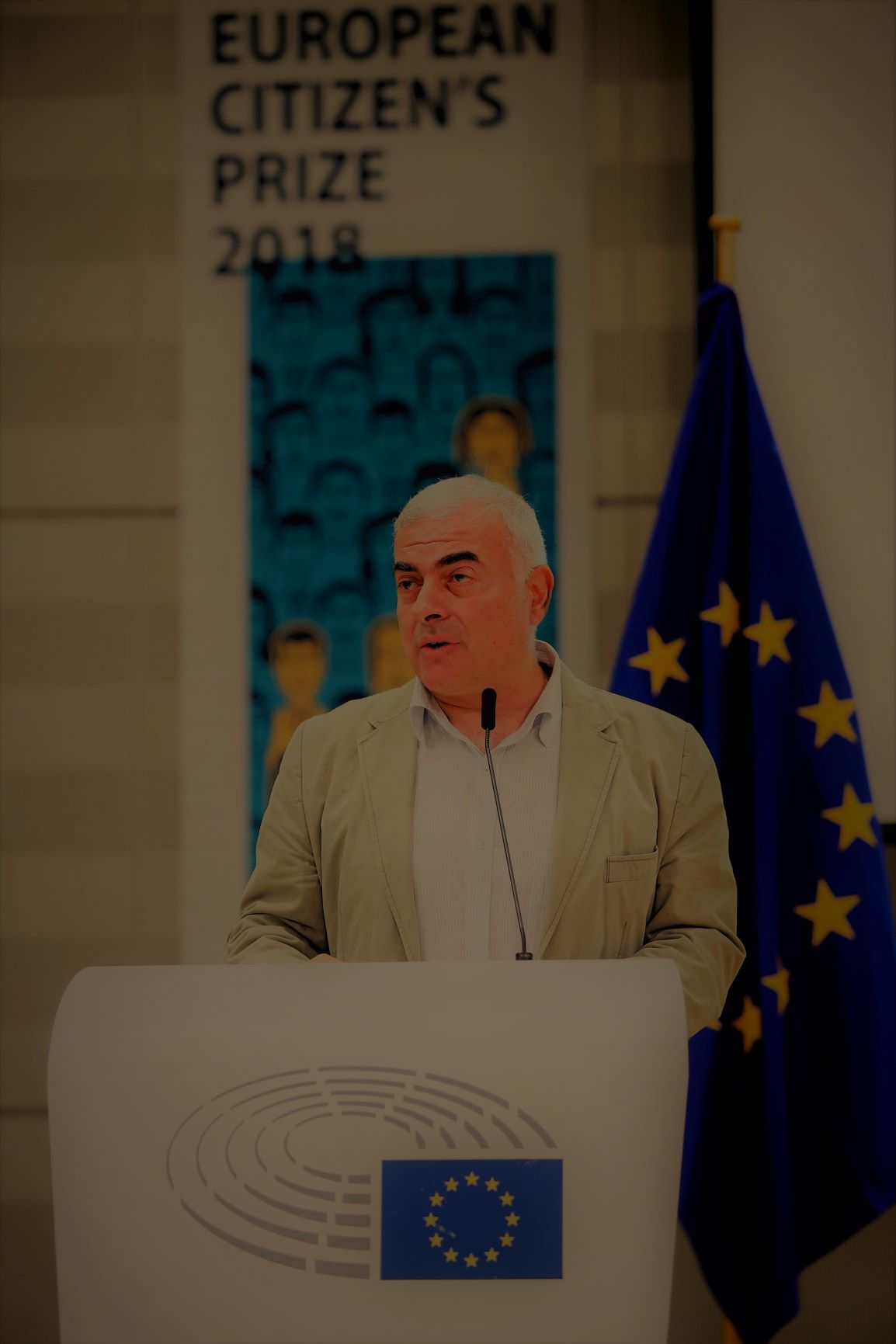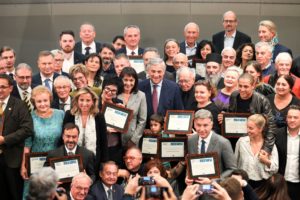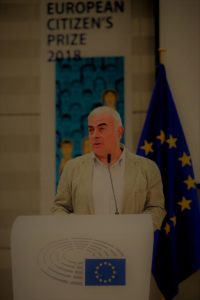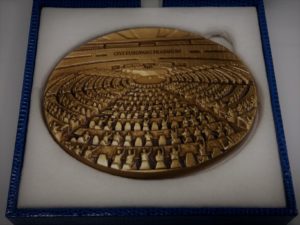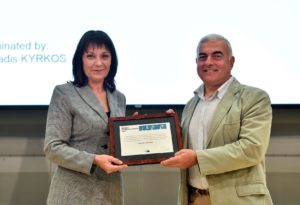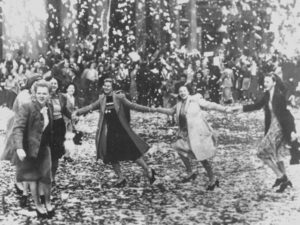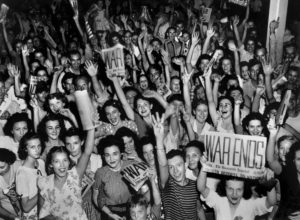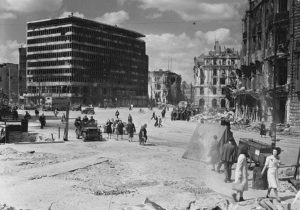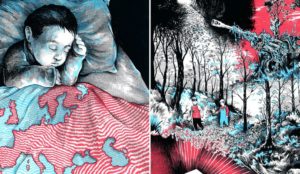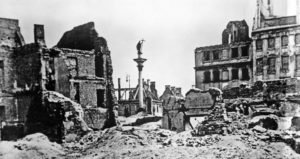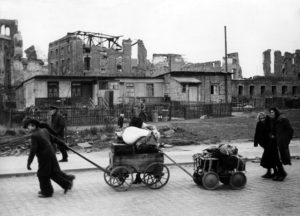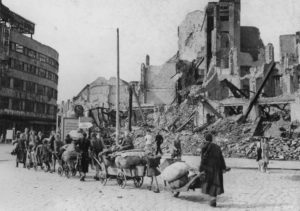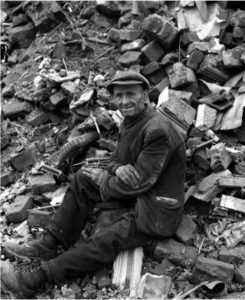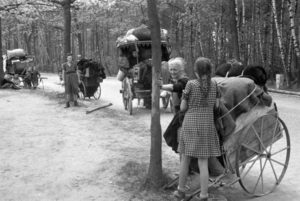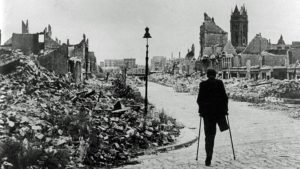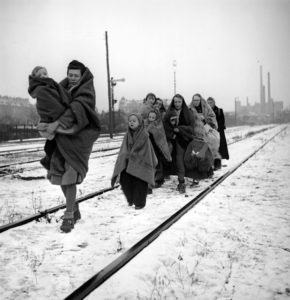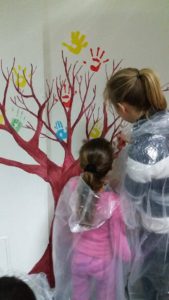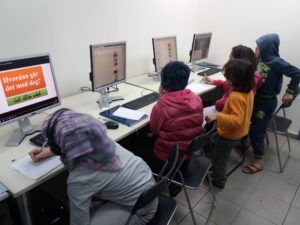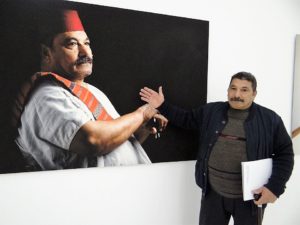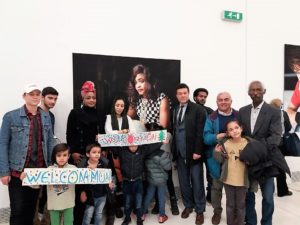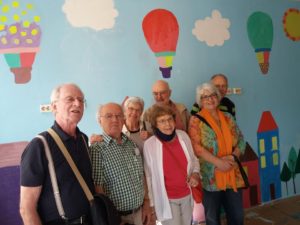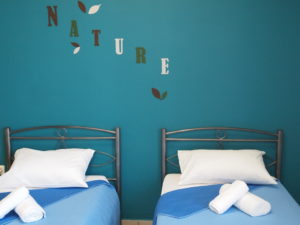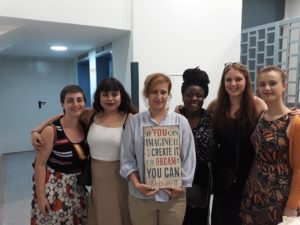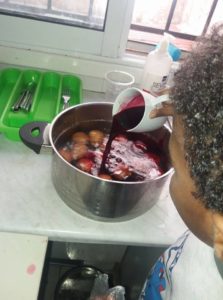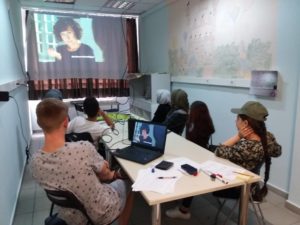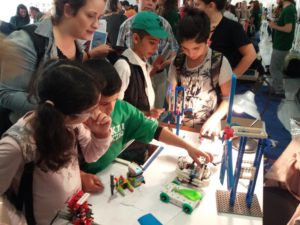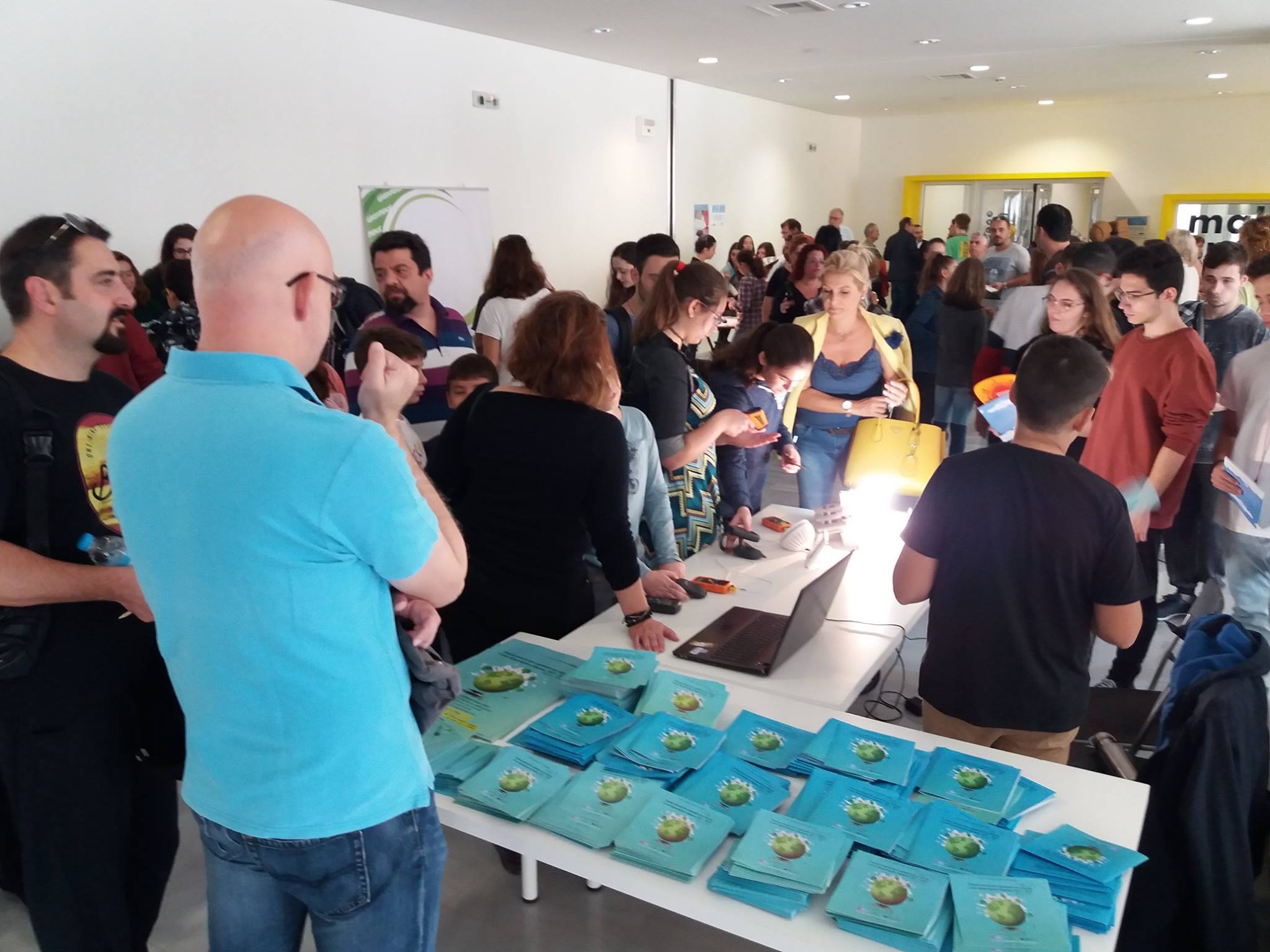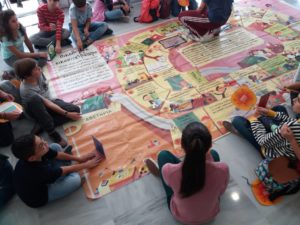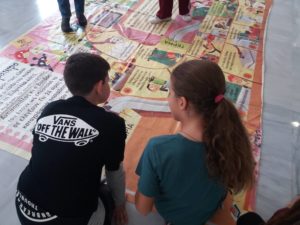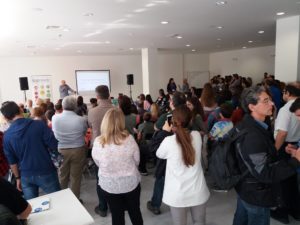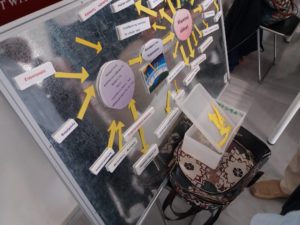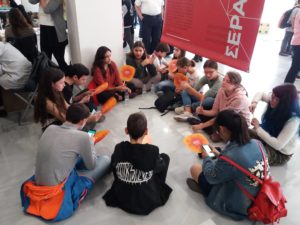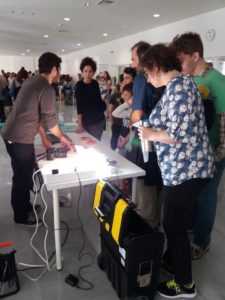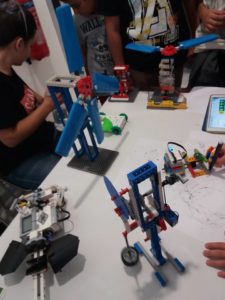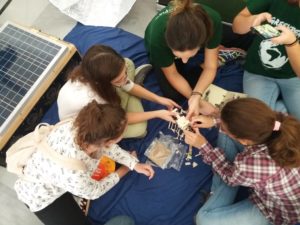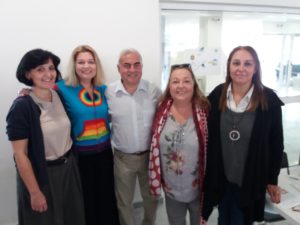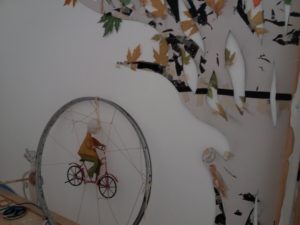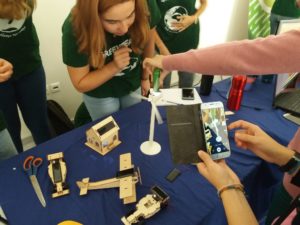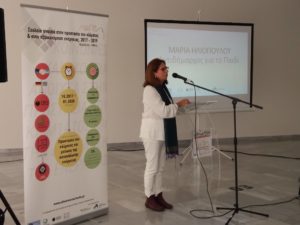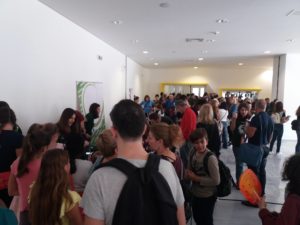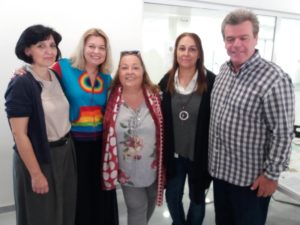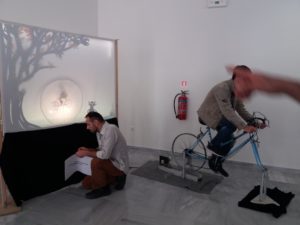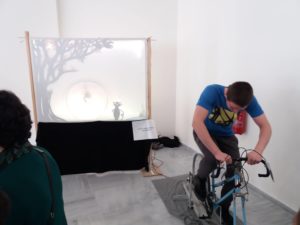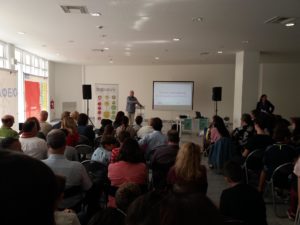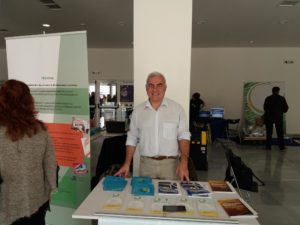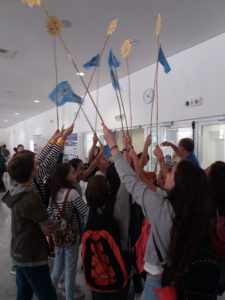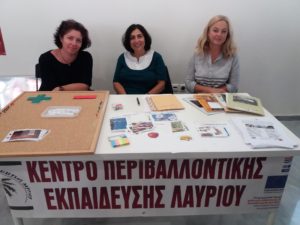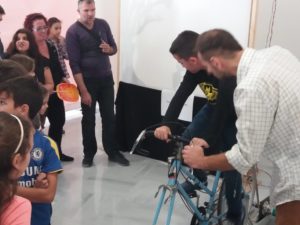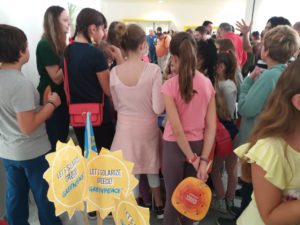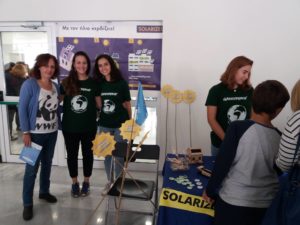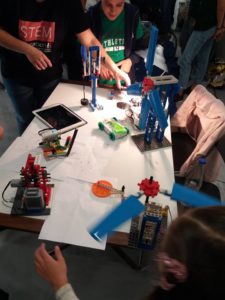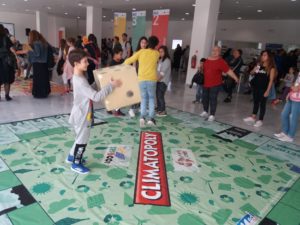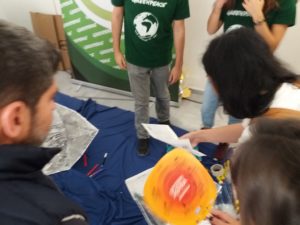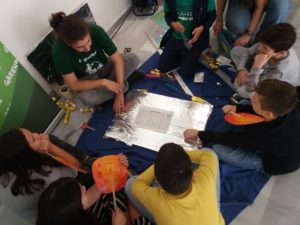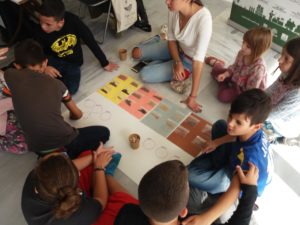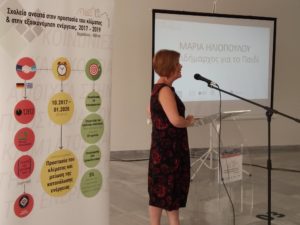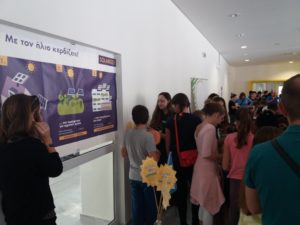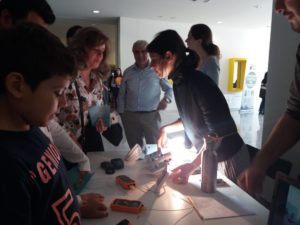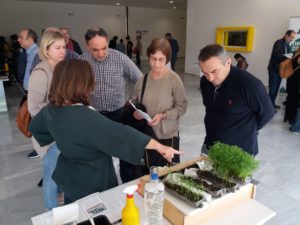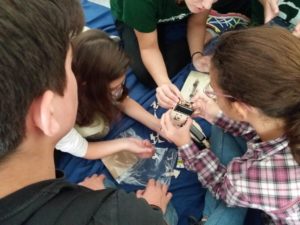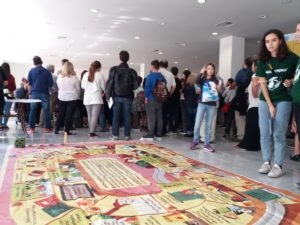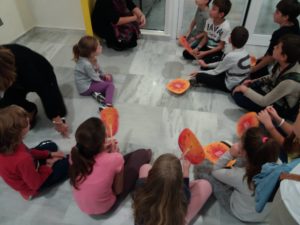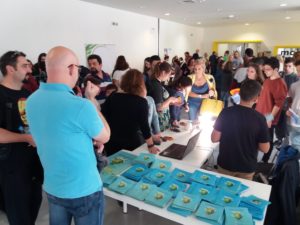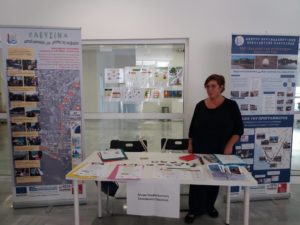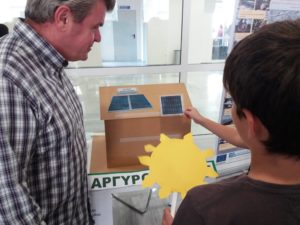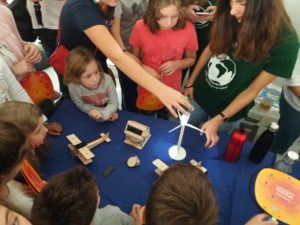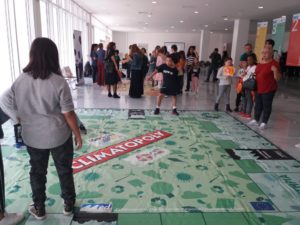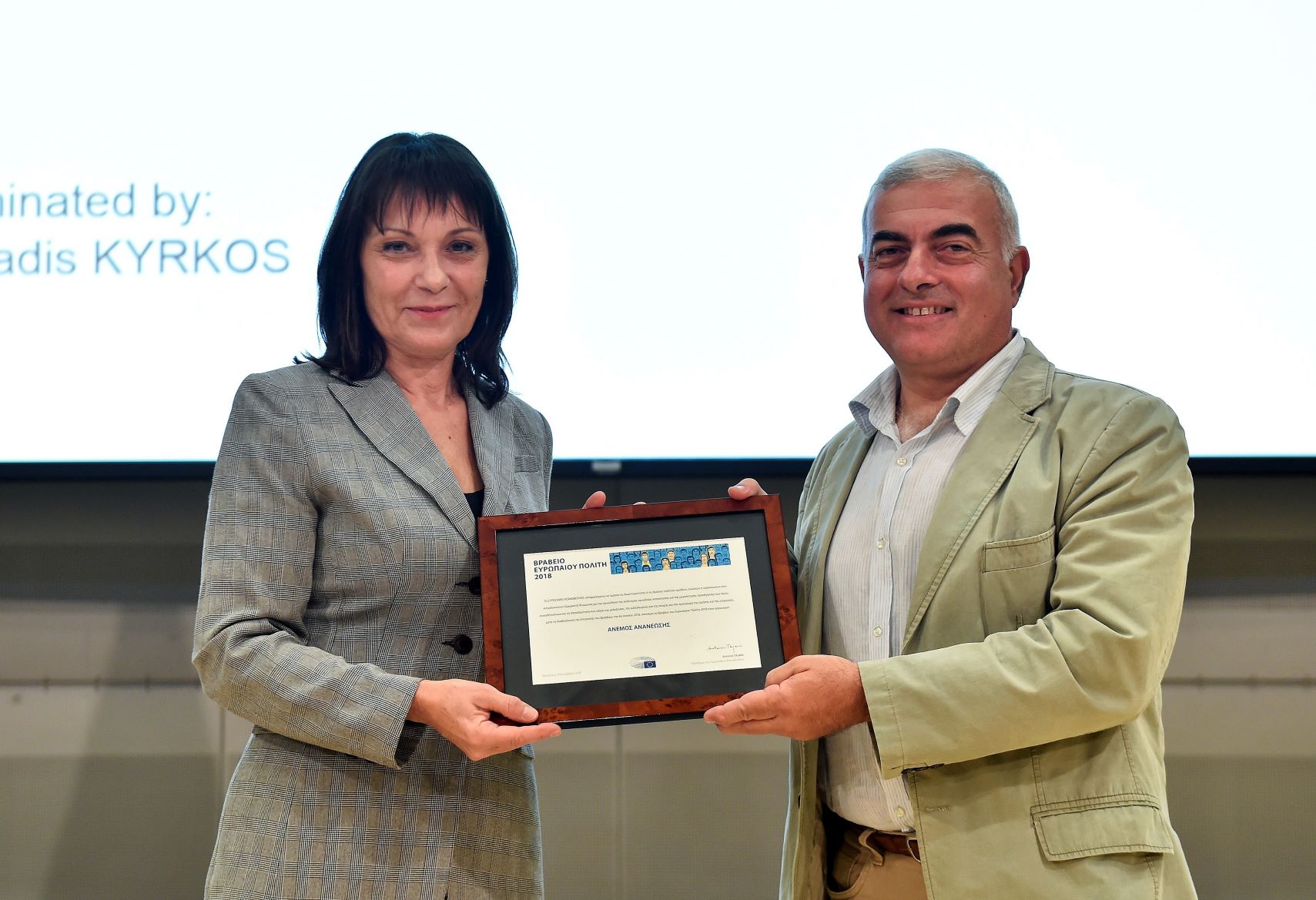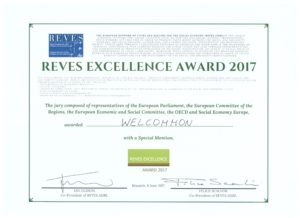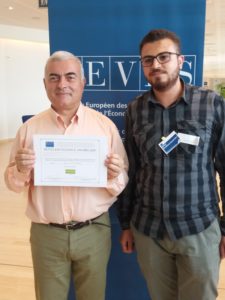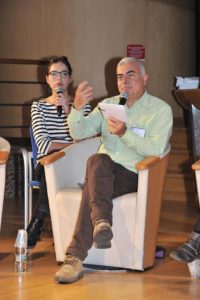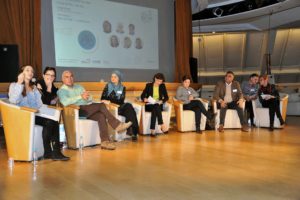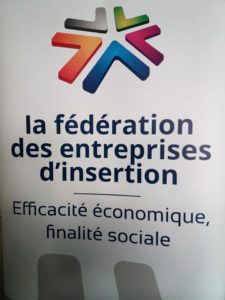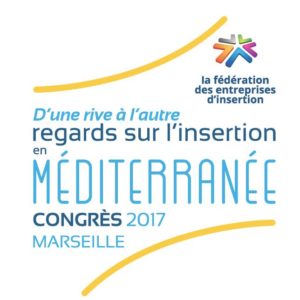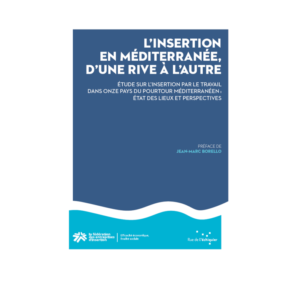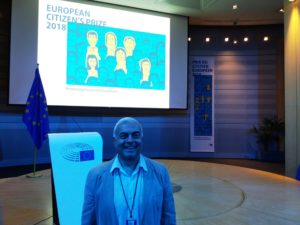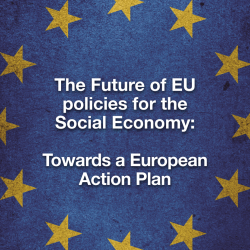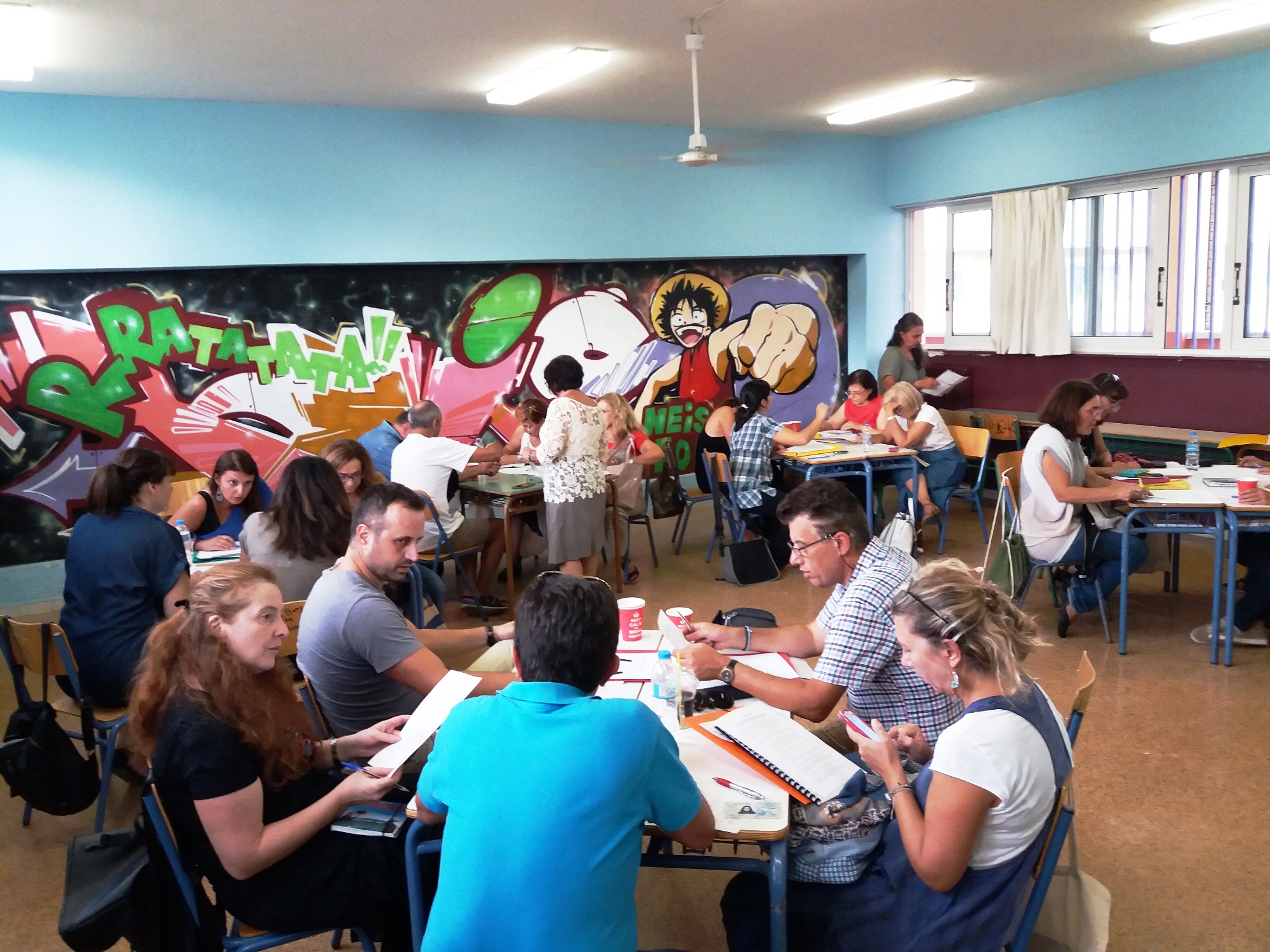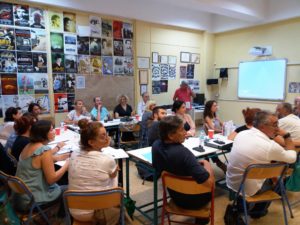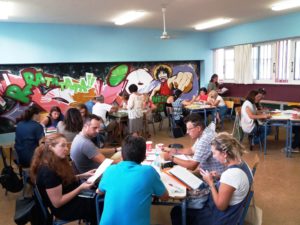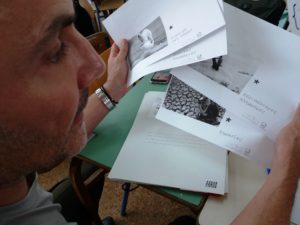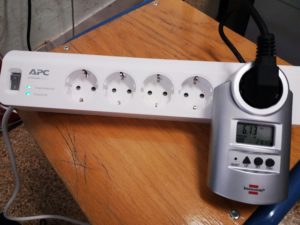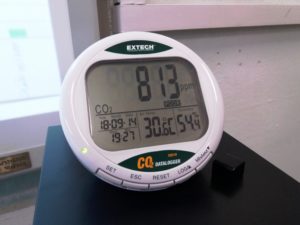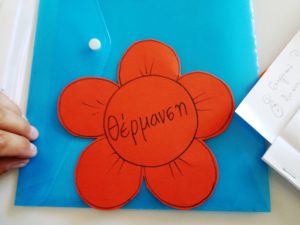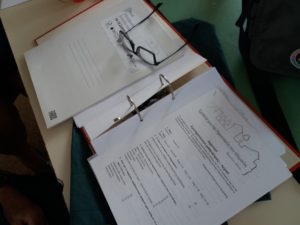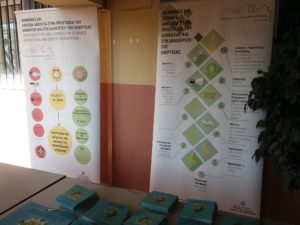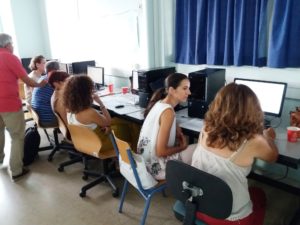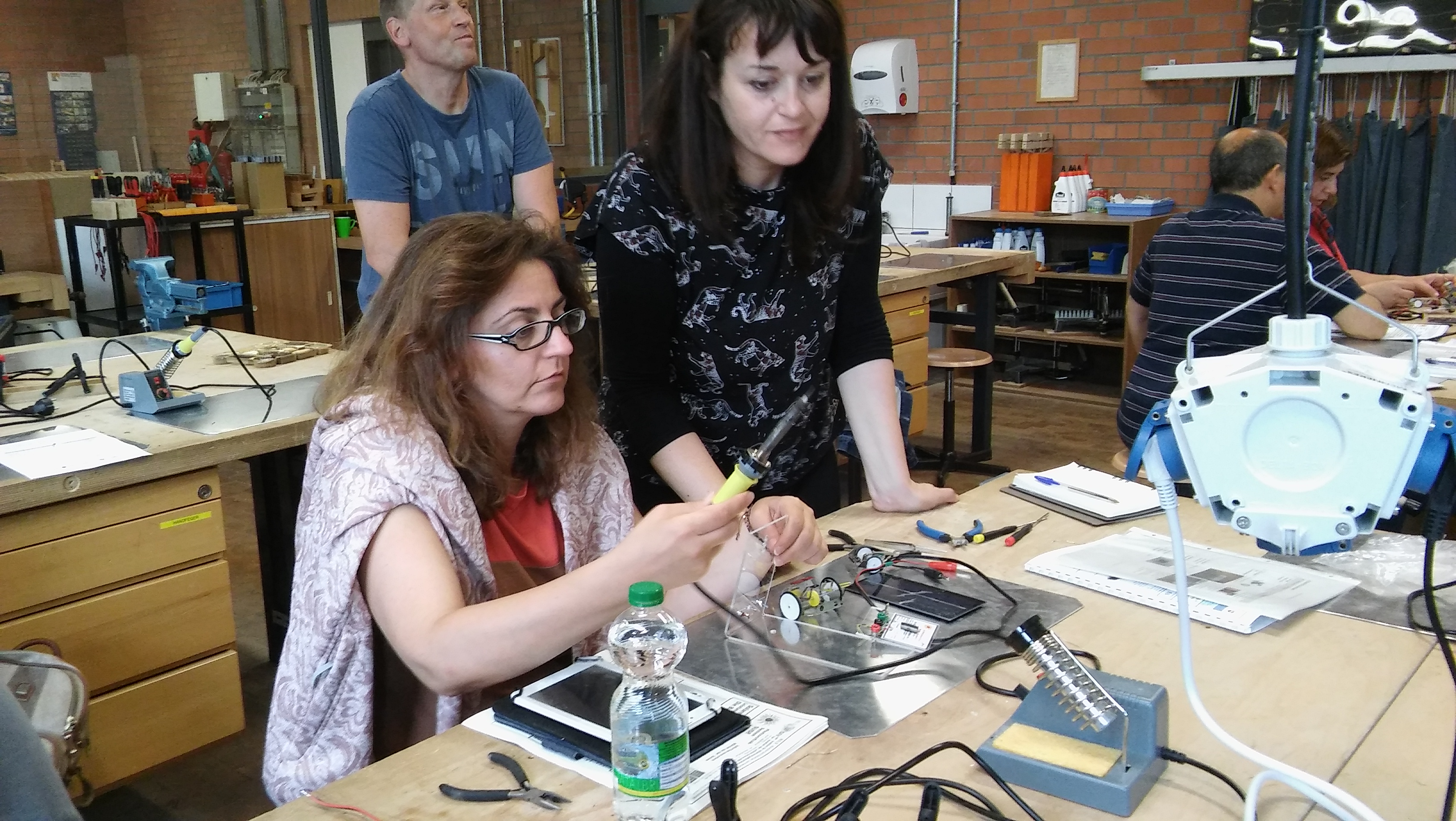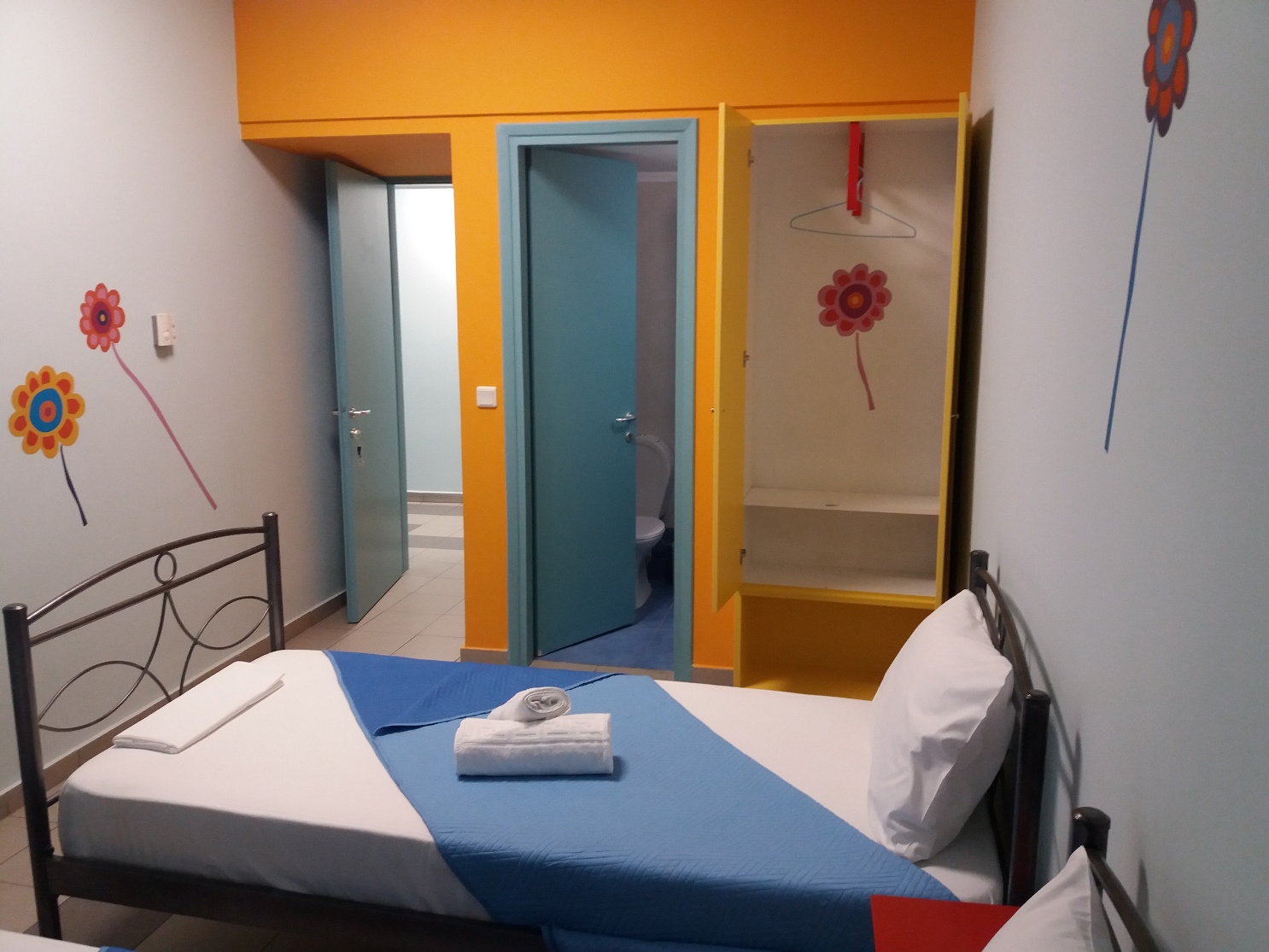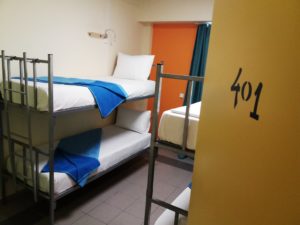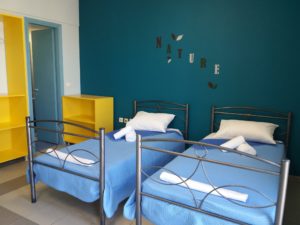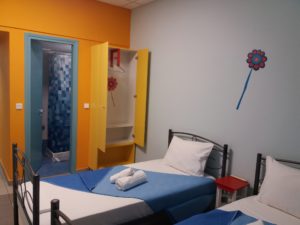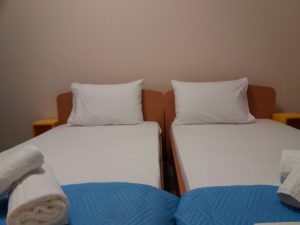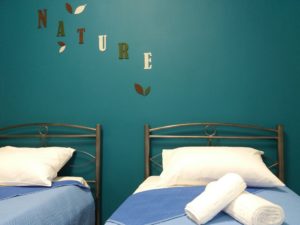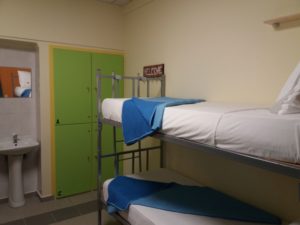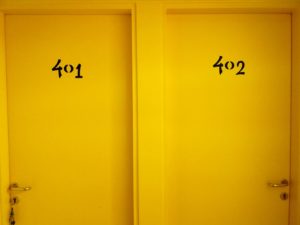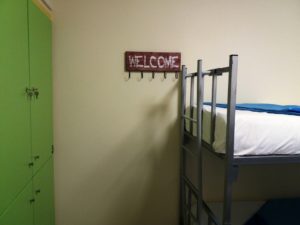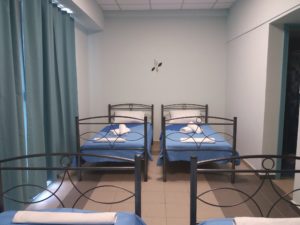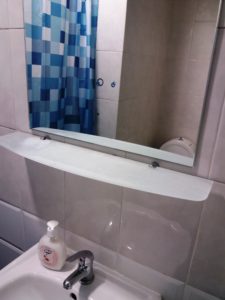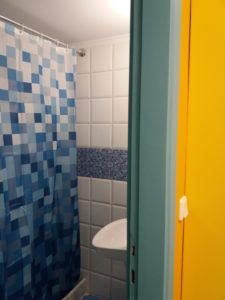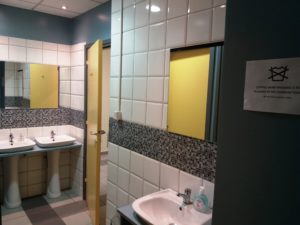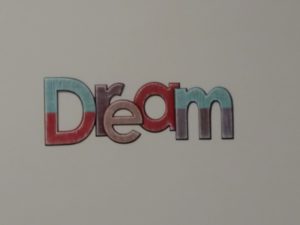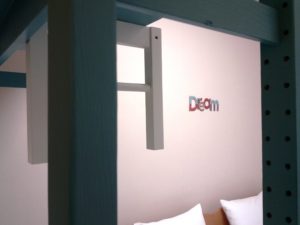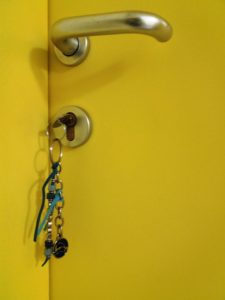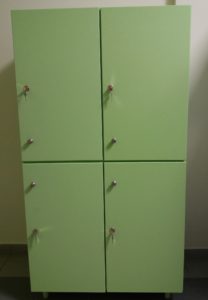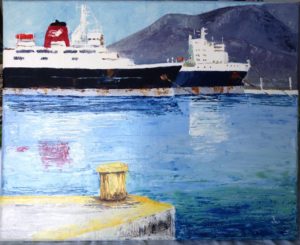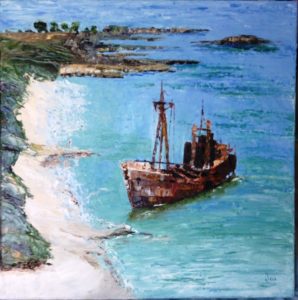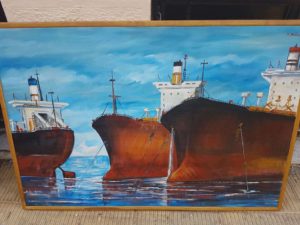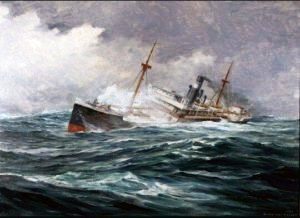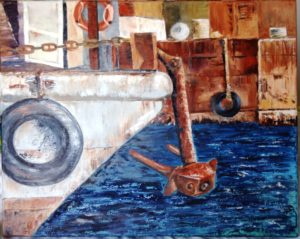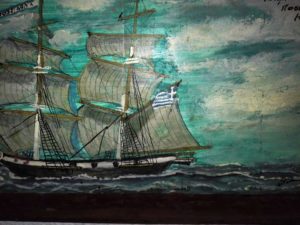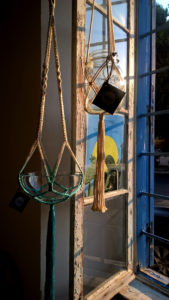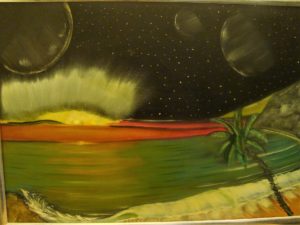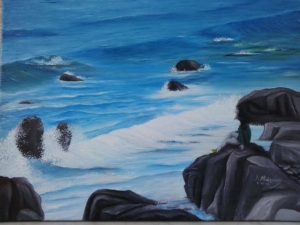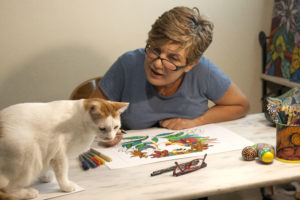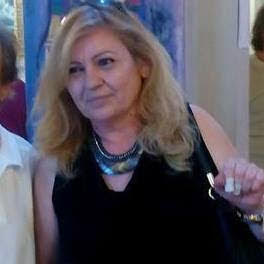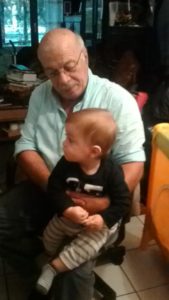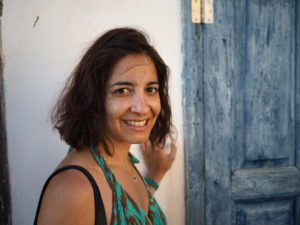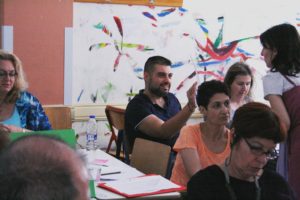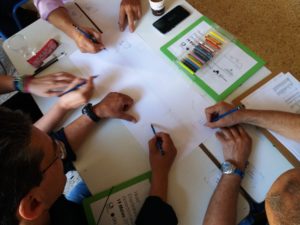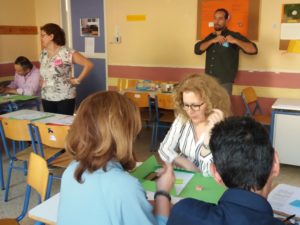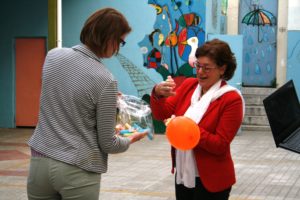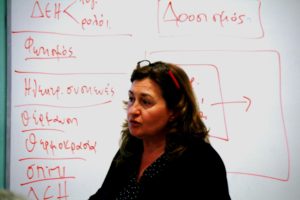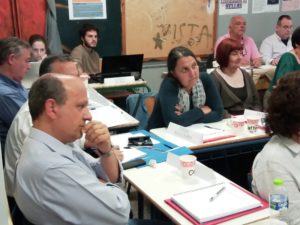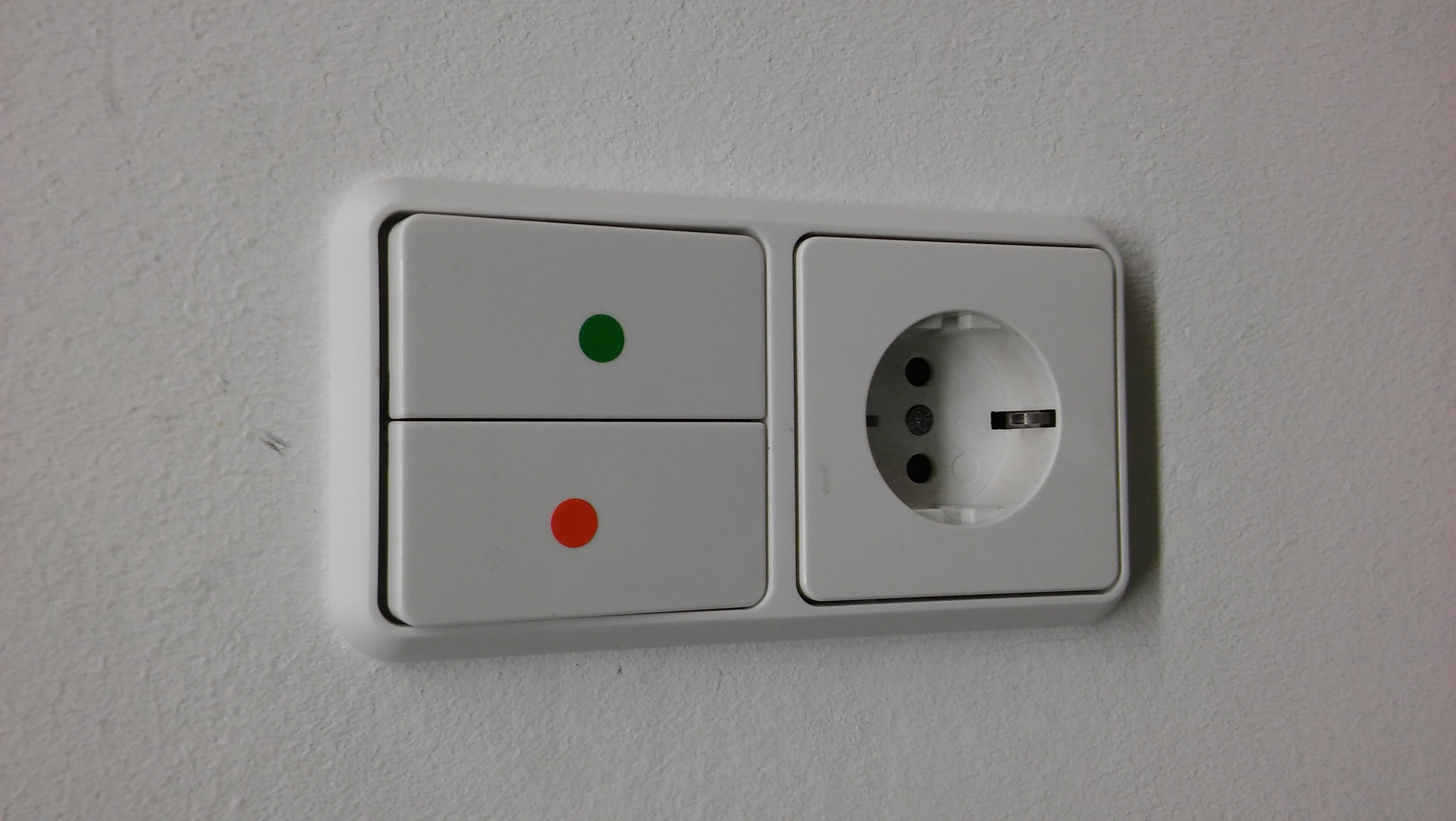
In the framework of the program “OPEN SOCIETIES AND SCHOOLS IN CLIMATE PROTECTION AND ENERGY TRANSITION (CLIMATE SCHOOL Be.At)”, a second study visit was made to Berlin. Six primary and secondary school teachers participated in it during the period 17-24 June 2018. Below is a brief description of the work of the study visit.
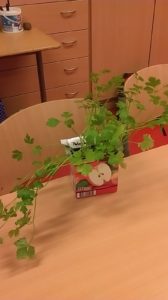
Day 1
Visit to Carl-Friedrich-von-Siemens-Gymnasium
Carl-Friedrich-von-Siemens-Gymnasium is an all-day public high school in a green area in Berlin’s northwest suburbs. 550 students, aged from 12 to 15 attend the school (6 grades). All students must have graduated with a minimum grade from the primary school and must also have received a positive recommendation from their teacher. The school personnel cosists of 52 teachers, 3 trainees, 3 secretaries and 3 social workers.
The school is active in environmental projects for 5 years and holds the Berliner Klima Schule, Eco Schools and MINT (STEM) certificates. It participates in ERASMUS Plus programs together with other Eco Schools, focusing on sustainability.
Good environmental practices in the school include, among others, sorting waste into separate bins in each class and corridor (paper, plastic, composite) as well as interventions in the building such as the installation of temperature regulators on each radiator and motion sensors to turn the lights on in the corridors, marked switches, bicycle parking to encourage green travel, etc.
Additionally, environmental programs are carried out as part of the extracurricular activities of the school (2 hours per week). Some of the actions that the environmental team of the school carries out are the organization of a sustainable Christmas bazaar, the publication of an information brochure on the environmental symbols used in consumer products, etc., in the schoolyard the students maintain a small habitat with a pond and plants, build birdhouses and participate in the maintenance of beehives.
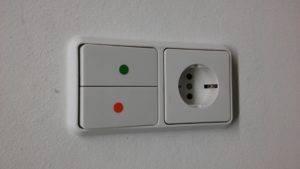
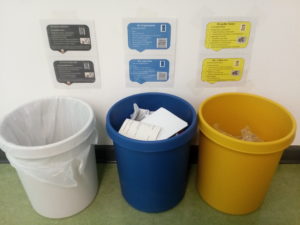
Energy saving practices
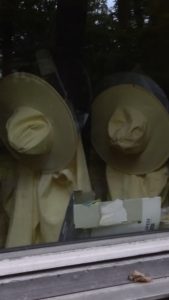
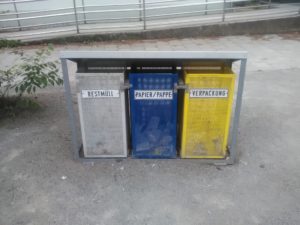
Environmental activities in the schoolyard
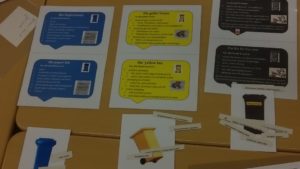
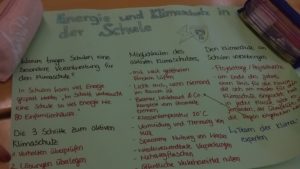
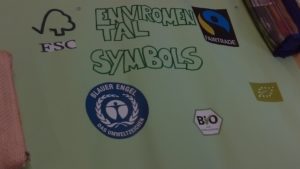
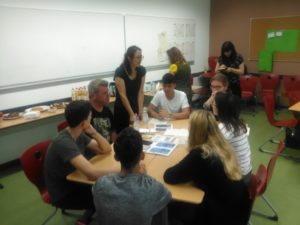
Students’ environmental projects
Day 2
Visit to Quentin-Blake-Europe-School
Quentin-Blake-Europe-School is an all day public primary school with 420 students, 35 teachers and 15 educators who help with the lesson and supervise students in their leisure time. It has classes for bilingual students who are taught the main lessons in English and German-speaking students who are taught English only as a foreign language. There are educational clubs in the school, one of which concerns Environmental Education.
Great importance is given to shaping and exploiting the schoolyard, which is shared with the children of the Special School. The schoolyard consists of football and basketball courts, a children’s playground, a wall and a climbing net, shelters, playing in the mud with water from a hand pump and sand. In addition, students borrow kinetic development games, e.g. skates, which they return with the sound of the manual bell. Finally, there is a group of senior students responsible for noticing and resolving crises during breaks.
The school with its environmental activities has won the Berliner Klima Schulen and Klimaschutz-Zertifikat certificates. These actions include:
- “Green Wednesday” and “Green Week”, during which students are motivated to transport to and from school without a car.
- Recycling in separate colored bins.
- Lights with motion sensors in the corridors.
- Composting
- “Energy Saving Officers”: 2 students remind the teacher of the necessary actions at the end of the lesson (eg. room ventilation, turn off switches)
- “School vegetable garden”: Pupils plant, maintain, harvest and sell their products,
- “Garden” with pond and ornamental plants.
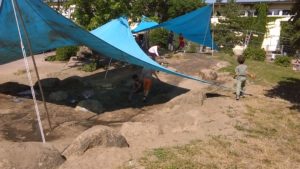
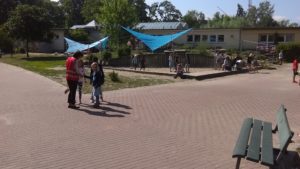
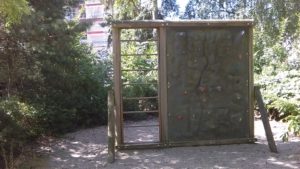
The schoolyard
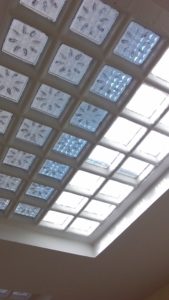
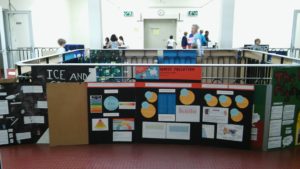
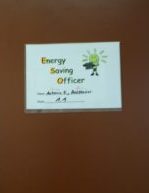
Good practices on energy saving projects
Green Wednesdays & Green Week
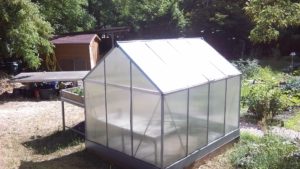
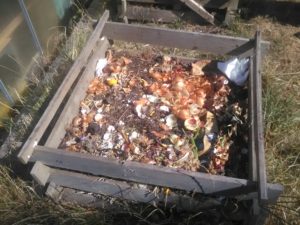
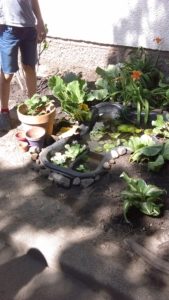
School vegetable garden & Artificial lake ecosystem
Visit to the KunstStoffe Upcycling Center
The aim of the KunstStoffe Upcycling Center is to change the relationship between the citizen and the use of the objects, to promote wider ecological goals, and to stimulate the local economy through collaborative networks with companies, schools, universities, artists and cultural centers. Its ultimate goal is to strengthen the resilience of the local community.
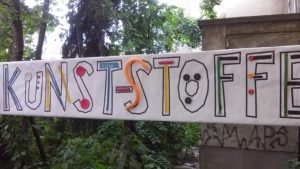
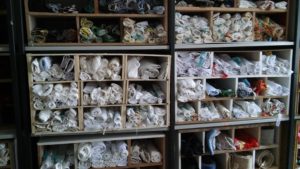
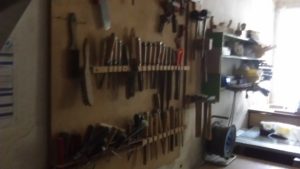
At the KunstStoffe Upcycling Center
At KunstStoffe we visited all the storage areas with the materials to re-use and our visit was completed with a short construction workshop with materials of our choice.
DAY 3
Workshop on palm oil in the botanical garden (BNE Zentrum)
The seminar was attended by high school students during the project week. It was divided into three phases:
- The first phase was introductory and included activities aiming to activate students on the topic and to inform them about the basic uses of palm oil (raw material for food, for cosmetics and biofuel).
- In the second phase the students were divided into groups and they had to stop by some workstations doing the corresponding activities. The activities highlighted various aspects of the subject, such as working conditions in palm plantations, deforestation, annual consumption and other environmental and social issues.
- The third phase was held in the greenhouse of the botanical garden which is one of the largest in the world. The students worked in groups and by using a worksheet they did activities in order to realise how many species of flora and fauna are affected by deforestation for the creation of palm tree plantations.
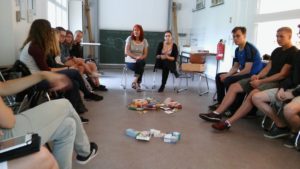
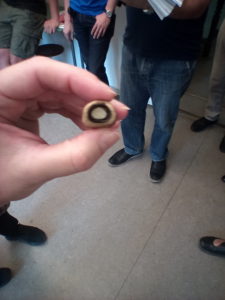
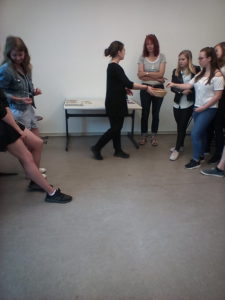
Seminar on palm oil – 1st phase
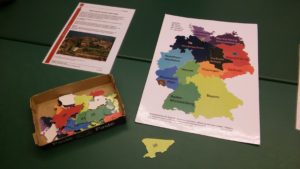
Seminar on palm oil – 2nd phase
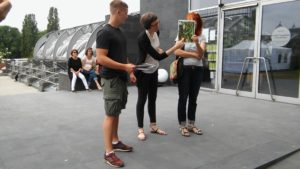
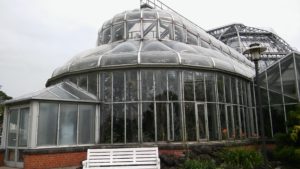
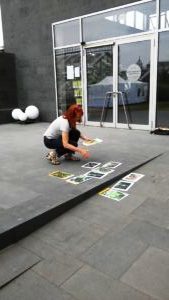
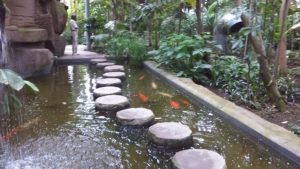
Seminar on palm oil – 3rd phase
Attending a course on teaching methods and measurements at BNE Zentrum
During the two-hour seminar, teaching methods were discussed together with how they can be used in energy saving programs. In addition, practical work took place on using the measuring instruments (temperature, brightness, humidity).
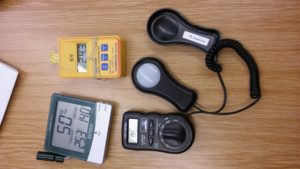
Temperature, illuminance & relative humidity measurement tools.
Meeting to promote collaboration and networking
Τhe meeting was attended by representatives of schools, institutions and organizations, including Respect for Greece (RfG). During the meeting, the possibility of future collaborations between Greek schools and German organizations was discussed.
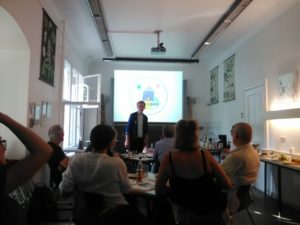
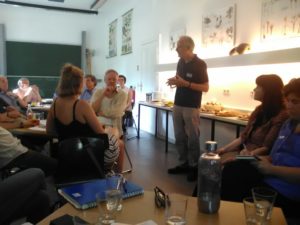
Co-operation & network meeting
DAY 4
Visit to the environmental education center Gartenarbeitsschule (GAS)
Το Gartenarbeitsschule (GAS) is a center for environmental education, which is open from 7:00 to 15:00. It employs 2 educators, a gardener and many volunteers (beekeeper, cooks, gardeners, a trainer-engineer by profession-, trainee teachers) and receives about 30,000 visitors per year. There are environmental programs implemented for the students in the surrounding areas on nutrition, energy, beekeeping, herb cultivation, vegetable and tree growing. Its 30.000 square meters include arable land, training rooms, a kitchen-dining room, a greenhouse, a specially designed outdoor area, a fenced area for animals (rabbits, etc), beehives and an experimental lab.
Students adopt an area of arable land with vegetables and herbs. They are responsible for planting, grooming and harvesting (spring – early autumn). In the training rooms they participate in activities and games for recycling and through experimental and exploratory methods they learn about life of living organisms (e.g. snails). In addition, in the kitchen-dining room the children cook their organic produce with the help of volunteer cooks. In the hives the children learn about bees and honey with the help of the volunteer beekeeper. In the same area there is an insect house.
In the experimental lab students are trained on renewable energy sources. At first, the concepts of renewable and non-renewable energy sources are clarified and also the way electricity is produced from ready-made experimental constructions is explored. Then, they either carry out experiments on wind energy with fans or construct paper models of solar cars from recyclable materials.
We had the chance to watch students in the first grade of high school consttructing solar cars. Each student
- Got a package with the necessary material
- Carved the contact points
- Cut the outline of the car, painted it
- Assembled the rest of the parts
- Placed the two solar panels
The students got out of the lab and observed the movement of the wheels, that is the conversion of the solar energy into kinetic energy. It is worth mentioning that during the whole process the students got help from both their teacher and the trainer.
On one of the roofs of Gartenarbeitsschule there are placed photovoltaic panels connected to a digital price table for CO2 in Kg, electricity production in kW, total solar output in kWh. The students observe the prices and discover the conversion of solar energy into electricity as well as the amount of CO2 that is not emitted into the environment.
Greenhouse & outdoor learning spaces
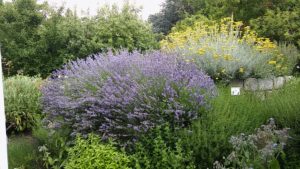
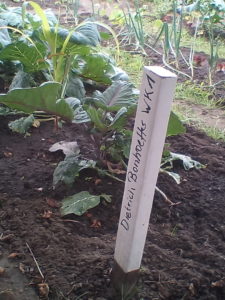
Planting places for vegetables and herbs
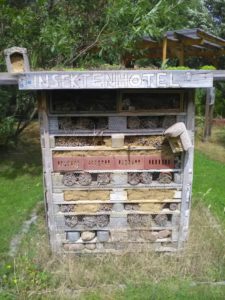
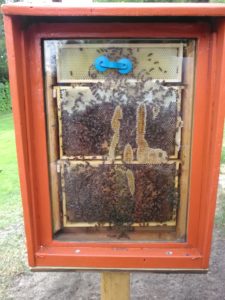
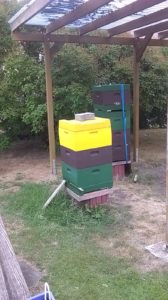

Beehives & other insect hosting constructions
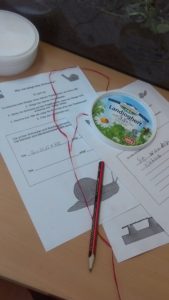
Educational project for snails
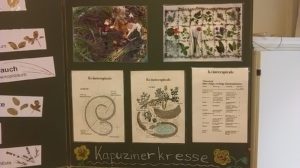
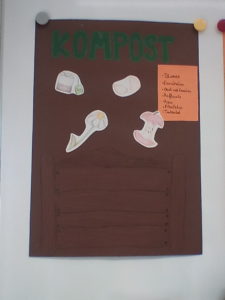
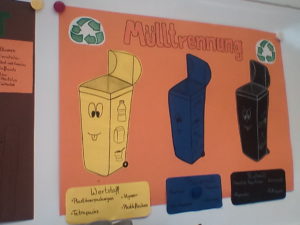
Recycling, composting and nutrition projects
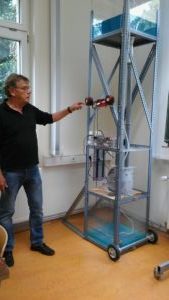
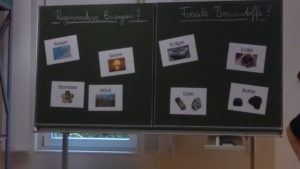
Educational projects for alternative forms of energy
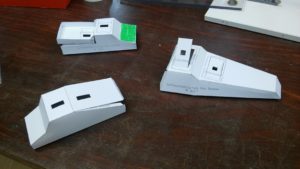
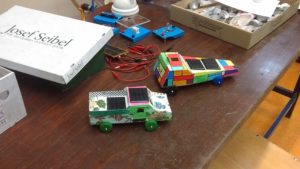
Construction of paper solar car model
DAY 5
Visit to Robert-Havemann-Gymnasium
We visited one of the laboratories of Robert-Havemann-Gymnasium in northern Berlin. This lab is located in the ground floor of the school, it was created by a Physics Department’s initiative, and it consists of three thematic labs: “Energy lab”, “Solar energy lab” and “Renewable energy lab”. Its equipment (modern experimental devices) was funded by donations and prizes after participation in competitions. Apart from the Robert-Havemann’s students, students from other schools can visit it as well. It is also used for training teachers on relevant topics.
The laboratory’s manager (among the many energy conversion devices that were existing), presented us the fuel cell, power generation by cycling, geothermal heat exchangers, etc. After touring the premises, we went to the ” learning about energy lab” where we participated in a small solar car assemblage workshop. Our trainers handed out the parts of the small car to us, which we progressively assembled, following the worksheet instructions. Finally, after putting the photovoltaic panels outdoors, in order to get charged by the sun, we activated our solar cars.
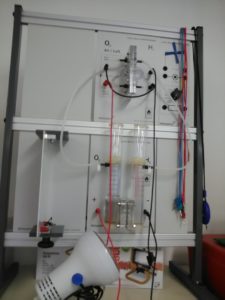
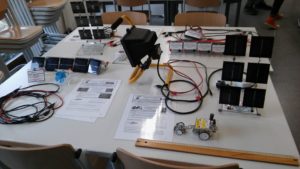
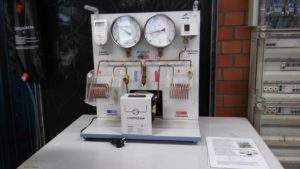
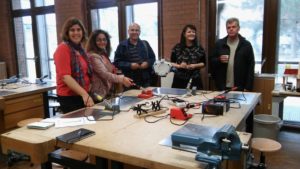
Energy laboratories at the Robert-Havemann Gymnasium
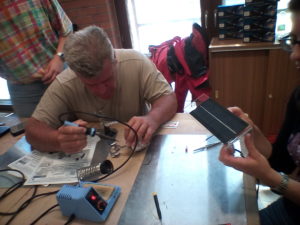
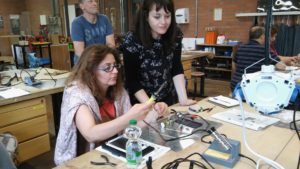
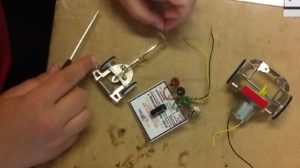
Construction of small solar cars
Evaluation
The second study visit to Berlin ended with an evaluation meeting between the two German project managers and the six Greek participants.
First of all, there was an evaluation table, titled “Happiness Radar”, depicting three faces in the left vertical column and the elements to be evaluated were mentioned in the horizontal line (each day of the study visit, time frame and duration, language and translation, coordination and communication, variety). Teachers completed the evaluation table according to their degree of satisfaction.
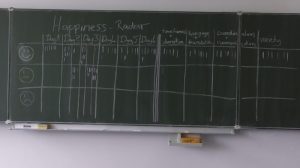
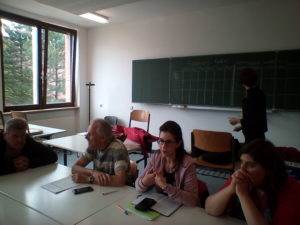
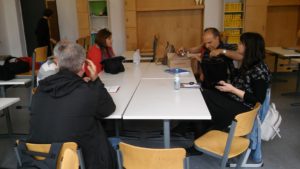
Study visit evaluation meeting
Subsequently, they discussed the visits they liked most, such as those that took place in the schools, the botanical garden, the environmental center and the energy lab. In total, of all the visits two were the least satisfying. One of them was the visit to the Upcycling Center, which could last less. The other one was the meeting for co-operation with representatives of institutions and schools, that did not have the expected result, as there was no participation of primary school educators and a small participation of secondary educators, that couldn’t achieve sufficient further networking between schools of the two countries.
Αξιοσημείωτη ήταν η οργάνωση και η συνέπεια συνολικά σε αυτήν τη δεύτερη εκπαιδευτική επίσκεψη στο Βερολίνο. Η μετάφραση στα αγγλικά ήταν πολύ καλή και χρήσιμη γεγονός που διευκόλυνε την επικοινωνία μεταξύ μας. Επιπλέον, υπήρξε ποικιλία στο καθημερινό πρόγραμμα επισκέψεων.
Τέλος, στην ολομέλεια έγιναν ορισμένες προτάσεις από τους εκπαιδευτικούς όπως η ανάγκη για περισσότερη εμβάθυνση σε επιστημονικά ζητήματα, καθώς και ο διαχωρισμός των μελών σε ομάδα πρωτοβάθμιας και σε ομάδα δευτεροβάθμιας για μια μέρα ώστε κάθε ομάδα να επισκεφθεί χώρους προσανατολισμένους στο αντικείμενό της.
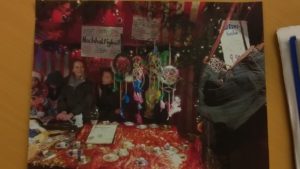
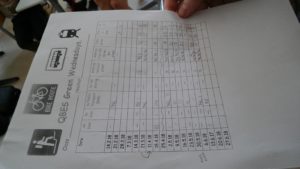
In overall, the organization and the consistency of this second study visit to Berlin was remarkable. Also, the translation from German to English was quite satisfactory and helped the communication among the participants a lot. In addition, there was a variety of schools visits.
Finally, suggestions were made by the Greek team, such as the need for further deepening on scientific issues and the separation of the group members into primary teachers and secondary teachers for one day, in order for each group to visit more places that meet more their professional interests.
In overall, the organization and the consistency of this second study visit to Berlin was remarkable. Also, the translation from German to English was quite satisfactory and helped the communication among the participants a lot. In addition, there was a variety of schools visits.
Finally, suggestions were made by the Greek team, such as the need for further deepening on scientific issues and the separation of the group members into primary teachers and secondary teachers for one day, in order for each group to visit more places that meet more their professional interests.
Teachers-authors
Michalis Fotiadis, Maria Boumpouka, Vasiliki Gkitzia, Dimitra Gavana, Pantelis Tsolakos, Argyro Tsokou
The program “OPEN SOCIETIES AND SCHOOLS IN CLIMATE PROTECTION AND ENERGY TRANSITION (CLIMATE SCHOOL Be.At)” constitutes a collaboration between the Municipality of Athens, the educational community, the Social cooperative “Anemos Ananeosis / Wind of Renewal”, the German citizens initiative Respekt für Griechenland e.V. / Respect for Greece (Berlin) and the German Unabhängiges Institut für Umweltfragen / UfU. It aims to the mobilization of the educational community, local communities and municipalities for climate protection and energy transition as well as to the energy efficiency of the schools with the substantial participation and collaboration of the teachers, students, parents and local authorities. The program is under the auspices of the Greek Ministry of Education.
The program has a duration of 28 months (2017-2019) and aims to raise awareness on climate change and energy consumption in the schools’ communitie of the Municipality of Athens (MoA).
The program was evaluated and selected for funding by the European Climate Initiative (EUKI), which is a project financing instrument by the German Federal Ministry for the Environment, Nature Conservation and Nuclear Safety (BMUB). It is the overarching goal of the EUKI to foster climate cooperation within the European Union in order to mitigate greenhouse gas emissions. It does so through strengthening cross-border dialogue and cooperation as well as exchange of knowledge and experience.
The program aims at:
- enhancing the overall efforts to inform and sensitize students, teachers and parents and their involvement in climate protection and reduce energy waste,
- the reduction of the energy footprint of school buildings (by 5%),
- an overall effort to reduce the ecological footprint.
